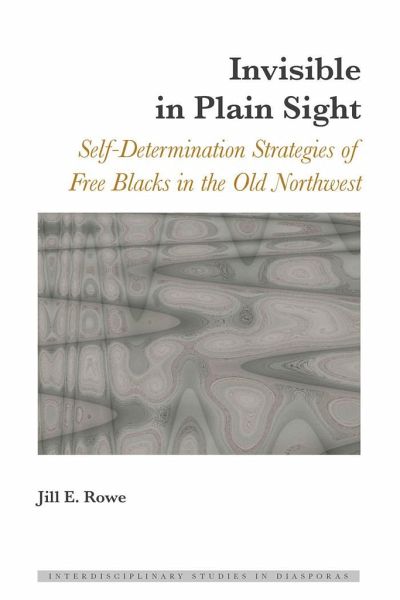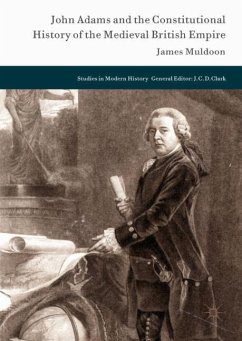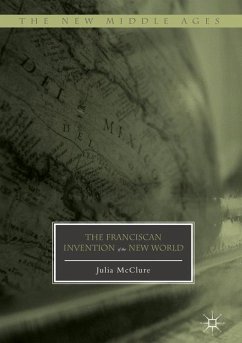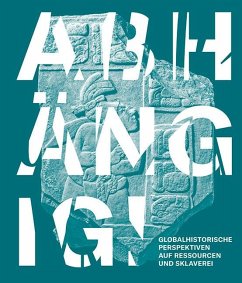
Invisible in Plain Sight
Self-Determination Strategies of Free Blacks in the Old Northwest
Herausgegeben: Scott, Dulce Maria; Blayer, Irene Maria F.
Versandkostenfrei!
Versandfertig in 6-10 Tagen
101,00 €
inkl. MwSt.
Weitere Ausgaben:

PAYBACK Punkte
0 °P sammeln!
The Land Act of 1820 made it possible for settlers to begin to populate the West and added to the confiscation of land from Native Americans. Former landowners - a mix of Native American, African and European ancestry - migrated to the northern frontier and founded at least thirty well-defined free black communities between 1820 and 1850 in the Old Northwest, becoming an important safe haven and beacon of freedom.Its notoriety and size grew as slaves often migrated to these locations after they were granted emancipation in the wills of slave owners who purchased land in the area for them to se...
The Land Act of 1820 made it possible for settlers to begin to populate the West and added to the confiscation of land from Native Americans. Former landowners - a mix of Native American, African and European ancestry - migrated to the northern frontier and founded at least thirty well-defined free black communities between 1820 and 1850 in the Old Northwest, becoming an important safe haven and beacon of freedom.
Its notoriety and size grew as slaves often migrated to these locations after they were granted emancipation in the wills of slave owners who purchased land in the area for them to settle on. The newly free people found sanctuary as these communities were also rumored to shelter runaway slaves in their role as active participants in the Underground Railroad Movement.
However, the prosperity of blacks living in these villages angered some of the local whites - many of whom were migrating at the same time and were connected to local law officials and politicians. Archival documents reveal continued acts of terrorism perpetuated against blacks which heightened the importance of the strength of the communities they founded - specifically schools, churches, businesses, and intergenerational family structures - in providing a unified front that allowed them to bond and thrive in an environment that was not always conducive to their survival.
Invisible in Plain Sight: Self-Determination Strategies of Free Blacks in the Old Northwest provides a rare detailed examination of an often overlooked piece of the American tapestry. It is perfect reading for history classes in high school and college, as well as for history enthusiasts looking for something new.
Its notoriety and size grew as slaves often migrated to these locations after they were granted emancipation in the wills of slave owners who purchased land in the area for them to settle on. The newly free people found sanctuary as these communities were also rumored to shelter runaway slaves in their role as active participants in the Underground Railroad Movement.
However, the prosperity of blacks living in these villages angered some of the local whites - many of whom were migrating at the same time and were connected to local law officials and politicians. Archival documents reveal continued acts of terrorism perpetuated against blacks which heightened the importance of the strength of the communities they founded - specifically schools, churches, businesses, and intergenerational family structures - in providing a unified front that allowed them to bond and thrive in an environment that was not always conducive to their survival.
Invisible in Plain Sight: Self-Determination Strategies of Free Blacks in the Old Northwest provides a rare detailed examination of an often overlooked piece of the American tapestry. It is perfect reading for history classes in high school and college, as well as for history enthusiasts looking for something new.














